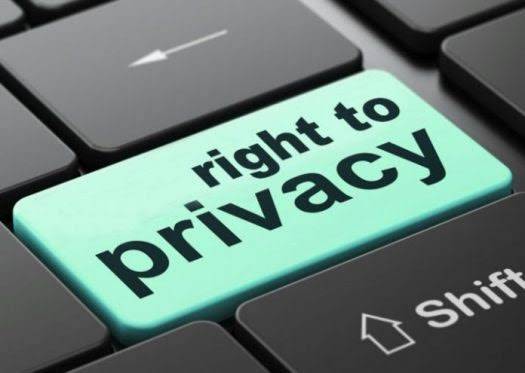Right to Privacy as Fundamental Right in India
On 24th Aug 2017, the nine-judge bench of the supreme court of India in his landmark judgment of K.S. Puttaswamy vs Union of India ruled that right to privacy is a part of Article 21 of the Indian constitution. “The right to privacy is protected as an intrinsic part of the right to life and personal liberty under Article 21 and as a part of the freedoms guaranteed by Part III of the Constitution”.
In the words of justice D.Y. Chandrachud “Privacy postulates the reservation of a private space for the individual, described as the right to be left alone”. All the fundamental rights are enforceable against the state but some of the rights including right to privacy can also be enforceable against non-state actors.
The right to privacy can be divided in four parts –
1. Information privacy-This include secrecy of bank details, the facts of some sensitive cases and the medical record of a patients.
2. Bodily privacy-This include forcefully taking blood for tests and searching in our clothes without our consent.
3. Privacy of communication-This includes official mails, phone calls and other form of communications.
4. Territorial privacy-This include all the property belonging to us if someone enters without out our permission it will be breach of privacy as well as constitute a tort. There should be a clear distension between public and personal space.
The discussion on was going on from along time starting with the protection of one’s body and home, it soon evolved in the direction of controlling their personal information. In 1891, the American lawyers Samuel warren and louis brandeis described the right to privacy in a famous article: it is the right to be left alone. In the United States, the supreme court recognized right to privacy in Griswold vs Connecticut (1965).
Right to privacy in India have evolved over the time like some others fundamental right. Some year after the framing of the constitution the Supreme Court has started to interpret the words of the constitution by which the scope of right have increased. The right to food, right to privacy, right to live with dignity and many more rights have been declared as fundamental rights by supreme court under the umbrella of Article 21 which reads as” No person shall be deprived of his life or personal liberty except according to a procedure established by law.”.
In 2012 Justice (Retired) Puttaswamy filed a writ petition in the apex court challenging the constitutional validity of the Aadhar as it violates right to privacy. The Attorney General of India argued in opposition by relying on the two previous Judgement of the Supreme Court MP Sharma v. Satish Chandra decided by an eight-judge bench in 1954 and the other, Kharak Singh v. State of Uttar Pradesh, by six-judge bench in 1962.
By declaring right to privacy as a fundamental right India has moved one step closer to the Universal Declaration of human rights 1948 by United Nation General Assembly which state right to privacy under article 12 of it. It read as” No one shall be subjected to arbitrary interference with his privacy, family, home or correspondence, nor to attack upon his honour and reputation. Everyone has the right to the protection of the law against such interference or attack”.
The declaration of right to privacy as fundamental right was of great importance in the case of Navtez Singh johar as the supreme court in 2018 decriminalised homosexuality as an offence under section 377 of Indian Penal Code. It decriminalised same sex intercourse between two consenting adults which was considered as an offence against the order of nature.
The privacy of man plays have a very important role in upholding his right to life with dignity and liberty. The Puttaswamy case have played an important role in Transgender persons (Protection of rights) Act 2019.
The act has a requirement to have a certificate from the district magistrate as a transgender, this violates their right to privacy. After facing flak from the transgender community, the center has done away with the requirement of a medical examination now transgender have to fill a form and declare in an affidavit to obtain their gender certificate. In the NALSA judgement of 2014, the supreme court of India have ruled that a person not falling in two binary gender can be legally recognized as a transgender. The judgement also direct center and state government to take actions to secure the rights of a third gender person.
The negative impact of the right to privacy is that it may hinder the performance of welfare scheme and it will also resist intelligence agencies to collect private information about the accused as mention in DNA profiling bill.
The privacy law is of great importance in the profession like Medical, Banking Sector and to lawyers as if any information leaked by any one of the professions mentioned above can cause a humongous damage to the parties. In this era of the modern technology of online transaction, use of social media, hackers and even a camera can be fitted in the cap of a pen, the privacy laws are necessary to resist them from breaching our right of privacy.
As we all know that the fundamental rights are not absolute in nature there have to be some reasonable restriction present on them and recognizing all the issues that may arrive after it the court highlighted the need to enact a legislation to place some reasonable restriction on the right to privacy. For the purpose of this the central gov have framed the justice(retired) BN Krishna committee to determine this and the bill drafted by the committee named as” Personal date protection bill 2019” was introduced in the parliament by ministry of information and technology this bill is now under consideration before the joint parliament committee of the parliament.
Author: Devanshu Jain,
SLS Nagpur

